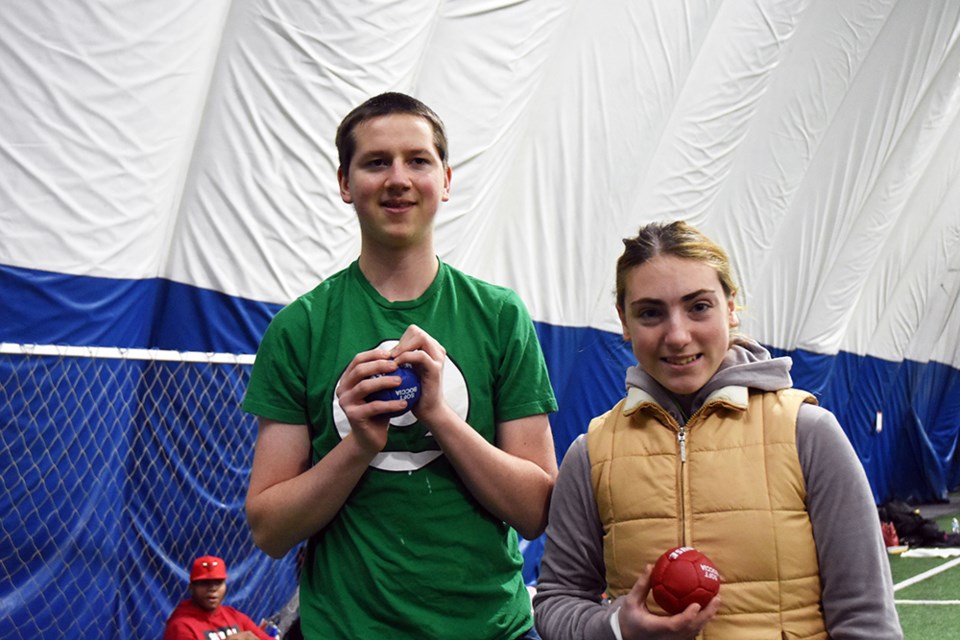Inclusion, effort and courage.
Those are by-words of the Special Olympics, an organization dedicated to changing the lives of people with intellectual disabilities, through sports. Special Olympics athletes discover new abilities, new skills, and new friendships through competition.
Currently, there are more than five million Special Olympians in 174 countries, including Canada.
On Friday, about 75 of those athletes were at the Bradford Sports Dome, participating in a qualifier for Special Olympics bocce ball. High-school teams came from Barrie, Newmarket, Maple and other areas around the region – competing for two berths at the International Special Olympics competition coming to Toronto May 14-17 next year.
“There are 76 qualifiers taking place across Ontario,” said Jane Wheeler, convener, noting that all the athletes at the dome were between the ages of 17 and 21, and accompanied by their teachers and coaches.
Bocce has been a Special Olympic sport “for a while,” said Wheeler. “What’s unique about it is that anyone can play it. Sometimes those that aren’t as physically capable are really, really strong at it.”
“It’s something kids like,” said Bernadette Garrett, educational assistant at St. Joseph’s Catholic High School in Barrie. “They like throwing the ball – it’s something they can do, and do well. They don’t always have to sit out and watch.”
Getting children and adults with intellectual disabilities engaged and involved was at the heart of the Special Olympics movement. According to the Special Olympics Ontario website, it was Toronto researcher Dr. Frank Hayden who proved that low fitness levels among those with intellectual disabilities were related to a sedentary lifestyle, not the disability – the result of being excluded from participation.
His conclusions inspired Eunice Kennedy Shriver and the Kennedy Foundation in the U.S. to launch the first Special Olympics, held in Chicago in 1968.
By the following year, a Special Olympics event was held in Toronto, under the support of sportscaster Harry “Red” Foster, and the idea has spread to become a worldwide movement.
Some of those competing at the dome have played bocce for years. Others were brand new to the sport.
Barrie North Collegiate was only recently introduced to bocce, practicing in hallways with borrowed balls. The team, accompanied by their canine ambassador Buddy, was thrilled to come out to play.
Athlete Chris Quinn summed it up: “It’s a good sport.”
“We love this. Being here today – this is just fabulous,” said Educational Assistant Ruth Ferris, noting that one of their substitute players “never even held a bocce ball” before Friday, but he was happy to be part of the competition. “The kids’ happiness is everything!”
“They are learning sportsmanship, and teamwork, and kindness,” added Barrie North Teacher Cathy Cudmore.
The Special Olympics qualifier had strong community support. Volunteers from Camp Oochigeas, wearing yellow vests, were on-hand to help out.
In the morning, officers with the South Simcoe Police Service also came out, delighting the participants. Police and law enforcement agencies are among the strongest supporters of Special Olympics, raising funds through the Law Enforcement Torch Run and other events.
Throughout the bocce competition, as Top 40 hits played in the background, the Special Olympians made their throws, to cheers, applause, and high-fives.
“It’s good,” said athlete Brandon Tozer, a student at St. Peter’s Catholic Secondary School in Barrie.
“We had a ball,” said Ferris.

